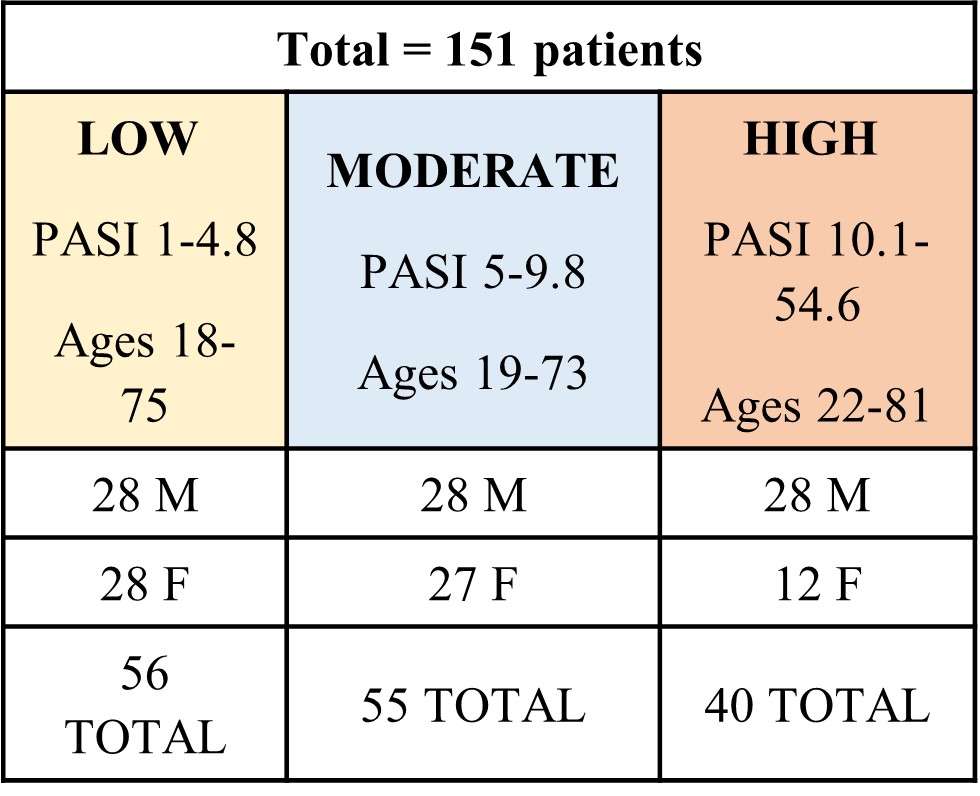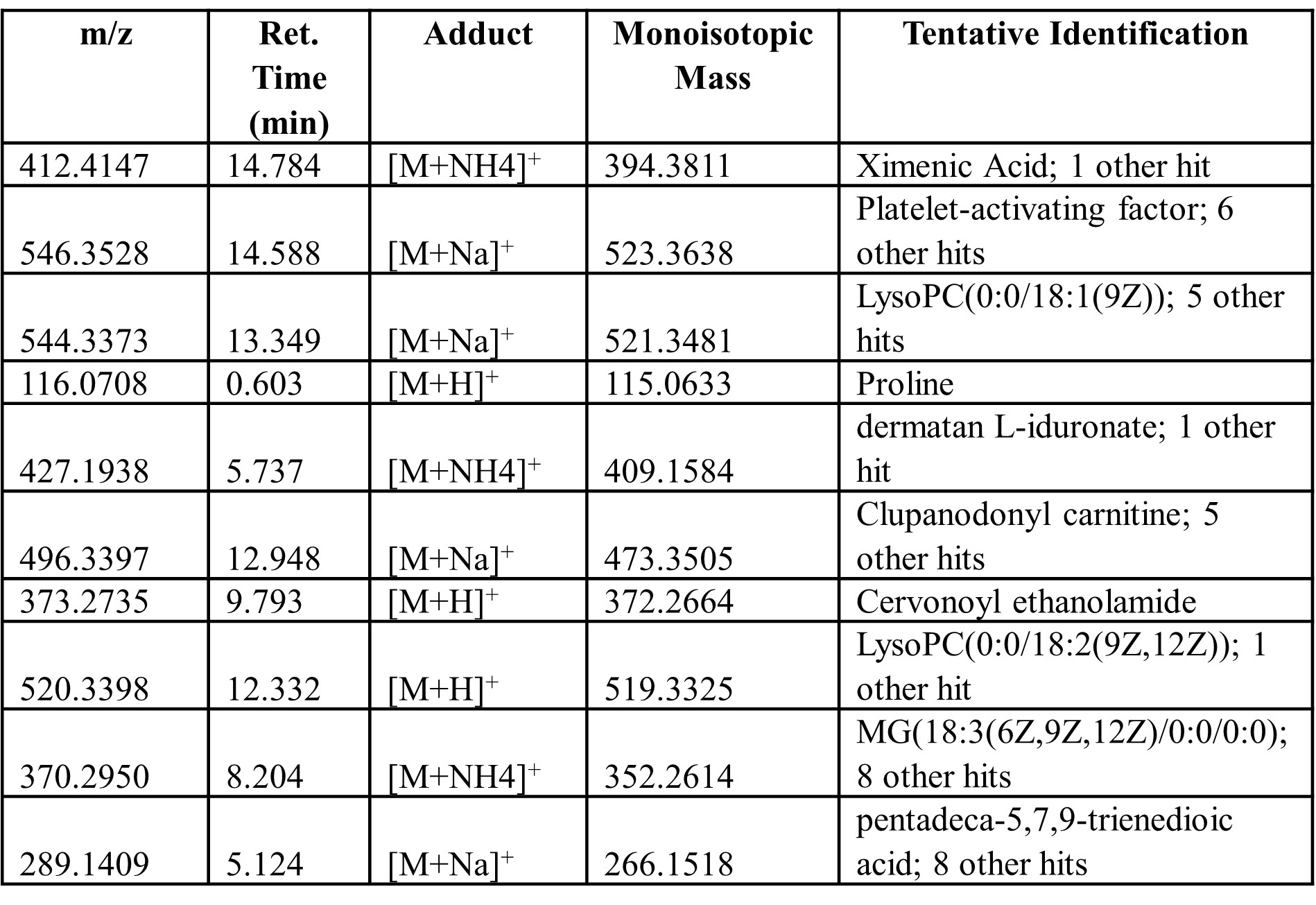Session Information
Session Type: Poster Session A
Session Time: 9:00AM-11:00AM
Background/Purpose: Psoriasis is a chronic, immune-mediated inflammatory skin disease that affects over 2.5% of the global population. Approximately 25% of psoriasis patients also have a form of inflammatory arthritis called psoriatic arthritis (PsA). Current methods for evaluating skin disease activity, like Psoriasis Area and Severity Index (PASI), are subjective and prone to intra- and inter-rater variability. A metabolomics-based approach can elucidate psoriatic disease pathogenesis and provide potential objective biomarkers. Therefore, we aimed to use solid phase microextraction (SPME) with liquid chromatography coupled with mass spectrometry (LC-MS) with the hypothesis that serum metabolites are associated with skin disease activity.
Methods: Serum samples from PsA patients (n=151, summary of demographics and disease characteristics shown in Table 1) with active skin disease and a range of PASI scores were selected. Patients were classified into 3 groups of psoriasis activity based on PASI- low (PASI 1-4.8) n=56, moderate (PASI 5-9.8) n=45, and High (PASI 10.1-54.6) n=40. SPME devices were prepared in-house and used to conduct the sample preparation, followed by positive and negative ion mode data acquisition via an untargeted approach using LC-MS. Associations between the levels of each metabolite and PASI scores was evaluated using 8 Machine learning (ML) models including support vector machine (SVM), random forest, and Naïve Bayes (NB) with varied feature sizes of 1-80. These models were summarised using Area Under Receiver Operator Characteristic curves (AUROC) for performance. Statistically significant metabolite features were tentatively identified.
Results: ML models were able to distinguish between low and high PsA severity with Area Under Curve (AUC) score as low as 0.745 for 10 features, and as high as 0.813 for 40 features. Trends were similar for other disease activity comparisons. A SVM model with 10 features were able to predict between low and high severity PsA with AUC = 0.862, and p-value < 0.05. Table 2 provides a summary of the results of the analyses. The features of interest used in best performing models were associated with dysregulation of fatty acid metabolism when predicting between low PASI versus moderate or high PASI. Some metabolites tentatively identified include eicosanoids with anti- or pro-inflammatory properties, like 12-Hydroxyeicosatetraenoic acid, which was previously implicated in joint disease activity in PsA. Other tentatively identified features belong to classes such as bile acid metabolites, oxidized phospholipids, N-acrylamide, and long-chain fatty acids.
Conclusion: An untargeted metabolomics approach was employed to analyze potential differences in serum metabolome of PsA patients of varying skin disease activity. Confirmation and validation of the tentatively identified circulating metabolites should be conducted to reveal potential biomarkers of PsA disease activity.
To cite this abstract in AMA style:
Choksi H, Li S, Looby N, Kotlyar M, Kulasingam V, Jurisica I, Chandran V. Identifying Serum Metabolomic Markers Associated with Psoriasis Skin Disease Activity [abstract]. Arthritis Rheumatol. 2023; 75 (suppl 9). https://acrabstracts.org/abstract/identifying-serum-metabolomic-markers-associated-with-psoriasis-skin-disease-activity/. Accessed .« Back to ACR Convergence 2023
ACR Meeting Abstracts - https://acrabstracts.org/abstract/identifying-serum-metabolomic-markers-associated-with-psoriasis-skin-disease-activity/


